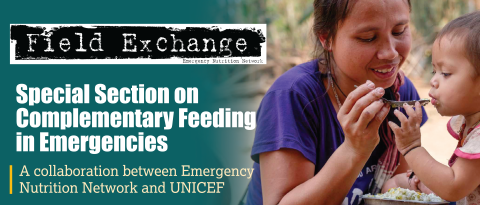Community peer support groups: Improving infant and young child feeding in Pakistan
This is a summary of the following report: UNICEF (2022) Research study on the role of community-based peer support groups in the promotion of infant and young child feeding practices. Unpublished.
With almost 40% of children being stunted, 29% underweight, and 17.7% wasted, Pakistan faces one of the highest burdens of malnutrition in Asia. Among other things, a lack of awareness amongst caregivers surrounding adequate infant and young child feeding (IYCF) practices has been identified as a key contributing factor. To remedy this, a combined approach that engages mothers and fathers, as well as providing social support, appears to be a promising strategy to encourage optimal feeding. The theory behind this approach is to engage these key influencers of a child’s diet and create a positive social environment which can be more successful in changing behaviours than programmes that focus on mothers’ knowledge alone.
A desk review, combined with in-depth interviews and focus group discussions, was undertaken to explore three specific objectives in the rural communities of Peshawar, KP and the drought affected communities in Tharparkar, Sindh: 1) The role of lady health workers in IYCF promotion, 2) the extent to which mother- and father- support groups have sensitised communities to the importance of the stages of breastfeeding and complementary feeding, 3) to examine other practices that have been adopted to sensitise local communities on IYCF.
Findings from focus group discussions indicated the positive role that lady health workers play in promoting IYCF which has been appreciated by communities. In particular, lady health workers helped to clear the myths and misconceptions that were passed from generation to generation such as discarding colostrum. It was noted, however, that the overall numbers of lady health workers are limited, compromising effective coverage in all areas.
Support groups were also found to be beneficial although aspects of the selection and training of group members, the frequency of meetings and the learning materials provided were highlighted as needing improvement. Other sensitisation practices adopted were found to be limited, although some cooking sessions and telephone calls were used by some.
In terms of knowledge of optimal IYCF practices, the findings indicated some confusion around when to initiate breastfeeding, with the terms ‘within’ and ‘after’ half an hour of birth creating uncertainty. The World Health Organization (WHO) guideline of exclusive breastfeeding within the first six months of life was, however, well understood by communities. Father support groups felt that breastfeeding should continue for one year whereas mother support groups correctly recalled the WHO guideline of two years of continued breastfeeding. Some fathers thought that exclusive breastfeeding was not needed if nutritious food was available, contrary to global health advice. Although awareness of complementary feeding after six months was strong, most respondents had limited knowledge around minimum dietary diversity, minimum meal frequency, and minimum acceptable diet. Biscuits with tea and roti with chilli powder and oil were mentioned as acceptable complementary foods, highlighting a critical knowledge gap.
The report identified six recommendations to improve IYCF in the region: greater provision of printed learning materials, financial incentives to support group members, using different sources of community sensitisation other than face-to-face sessions (cooking demonstrations, recipes, apps/phones etc.), improving the performance of community workers (e.g., greater pay, reduced workloads, logistical support), the formation of father support groups in areas that do not have them, and more regular support group meetings.


